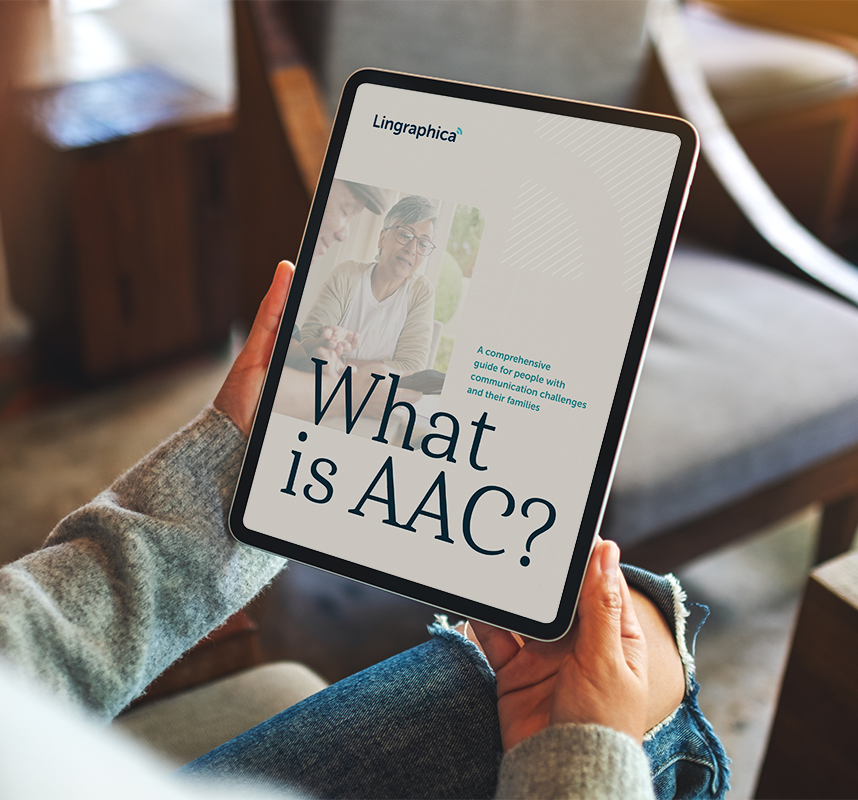
An aphasia diagnosis can be one of the most devastating things to happen to someone who survives a stroke or traumatic brain injury. In an instant a person can lose their ability to comprehend and use language. Similarly, an aphasia diagnosis can be just as devastating for that individual’s family and the person who becomes their caregiver.
Lingraphica recently issued The 2020 Aphasia Caregiver Report which offers a never-before-seen look at how the disorder impacts caregivers. The report contains responses from 733 caregivers of people with aphasia who graciously shared how their lives changed since their loved one acquired aphasia.
What we learned is that aphasia can have far-reaching effects on a caregiver’s mental, physical and emotional states as well as their relationships with others. But, despite the impact on their personal health and all of the challenges that come with being a caregiver, are motivated by largely altruistic reasons.
The Mental, Emotional, and Physical Impact of Aphasia on Caregivers
According to the report, the single most common thing caregivers experience is stress. Over 89% of respondents say that their stress level has worsened since their loved one acquired aphasia. Caregivers also take a hit in emotional well-being, sleep quality, energy level, life outlook, and physical discomfort/pain.
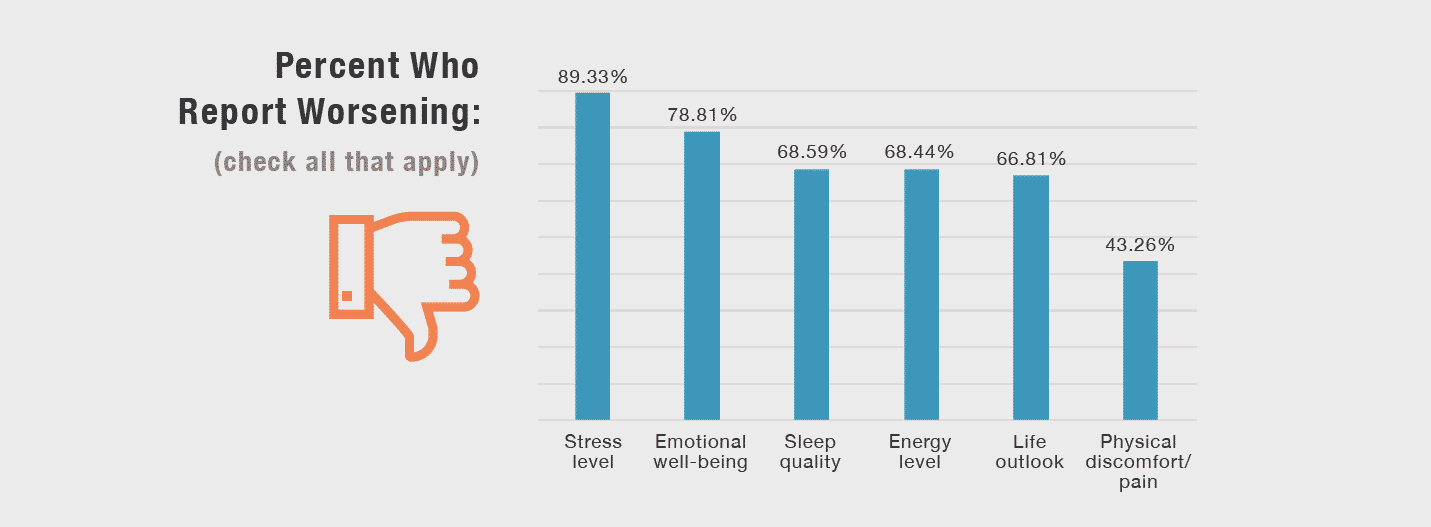
Aphasia Caregivers Experience Worsening Relationships
More than half of caregivers say that their relationships with friends have worsened. It is next most common for caregivers to report that their relationship with the person who has aphasia has deteriorated, followed by people in general.
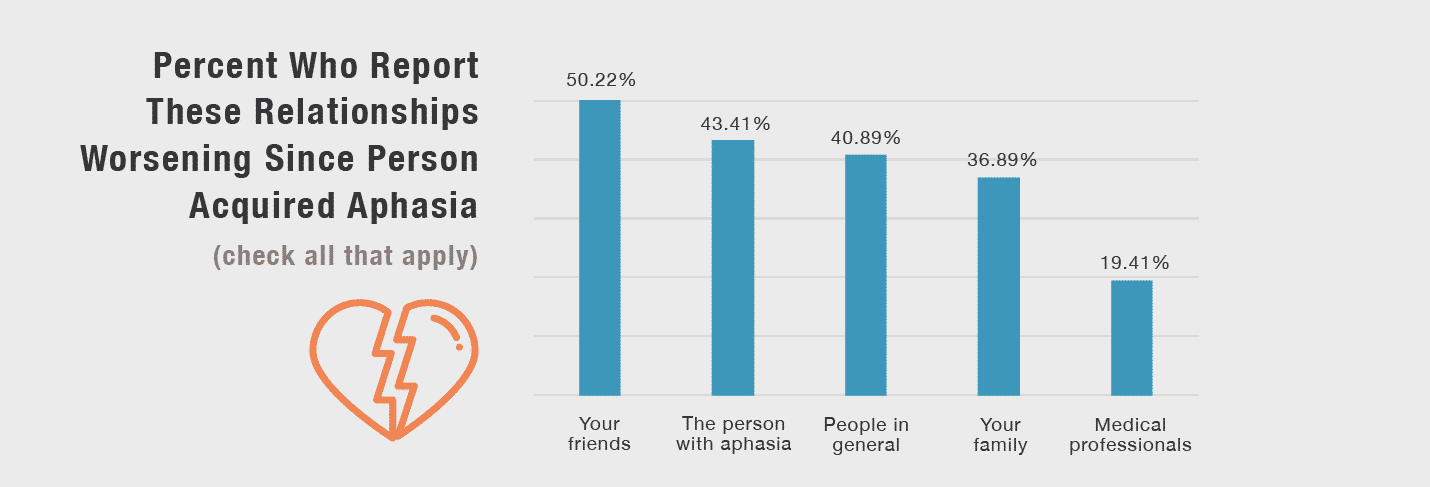
The Biggest Challenges Aphasia Caregivers Face
The most common challenge aphasia caregivers face is the inability to communicate or converse with the person who has aphasia. Interestingly, communication assistance is also the most common support activity caregivers help with (91%).
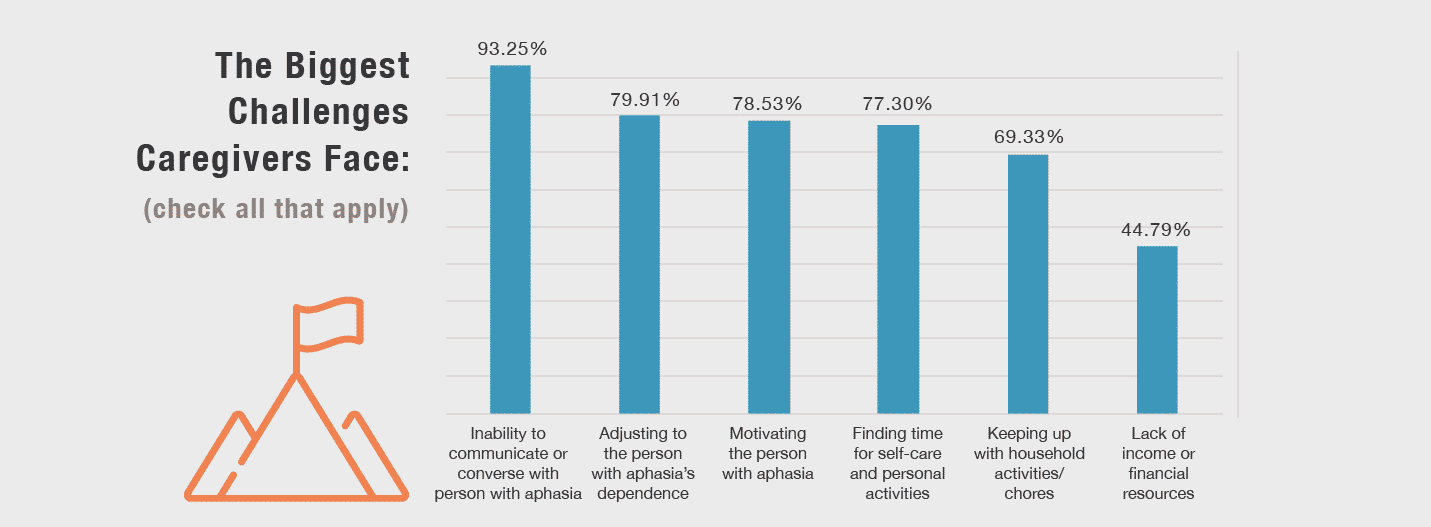
What Motivates Aphasia Caregivers?
Over 90% of caregivers say that they take care of the person with aphasia because they are invested in his or her quality of life. Over 78% note that they want to aid in his or her recovery. Despite all of the challenges that with being a caregiver, it is clear that they are invested in their loved one’s well-being.
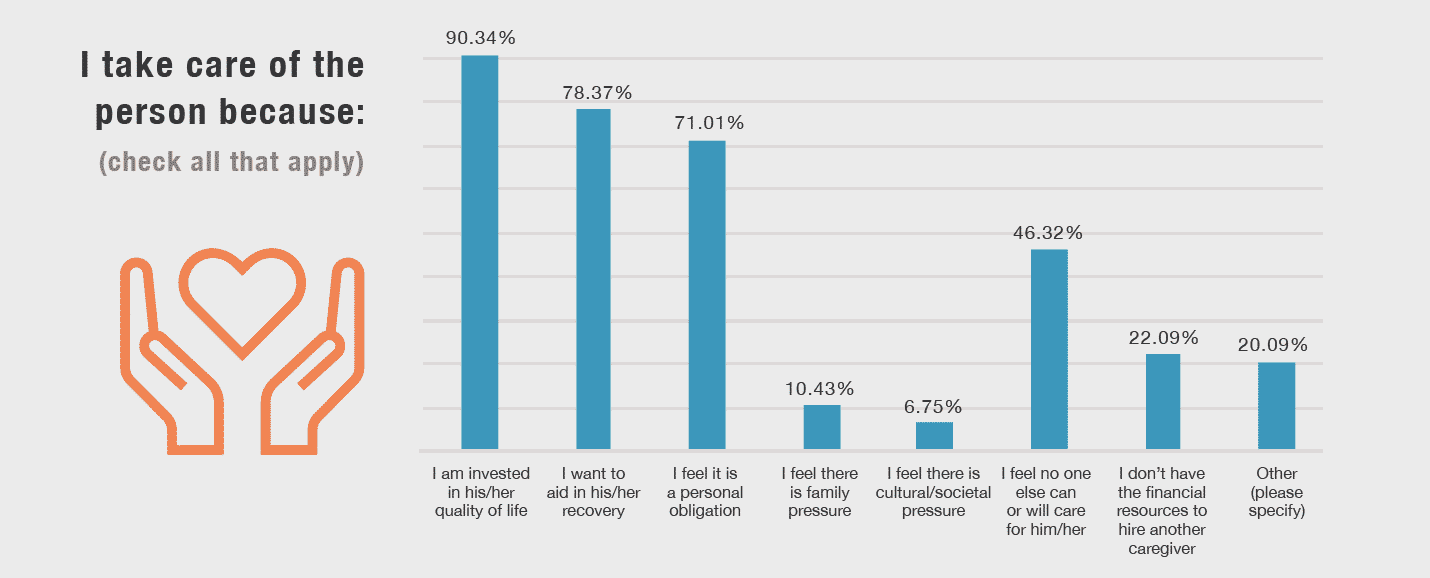
About Contributor
Lingraphica helps people with speech and language impairments improve their communication, speech, and quality of life. Try a Lingraphica AAC device for free.




